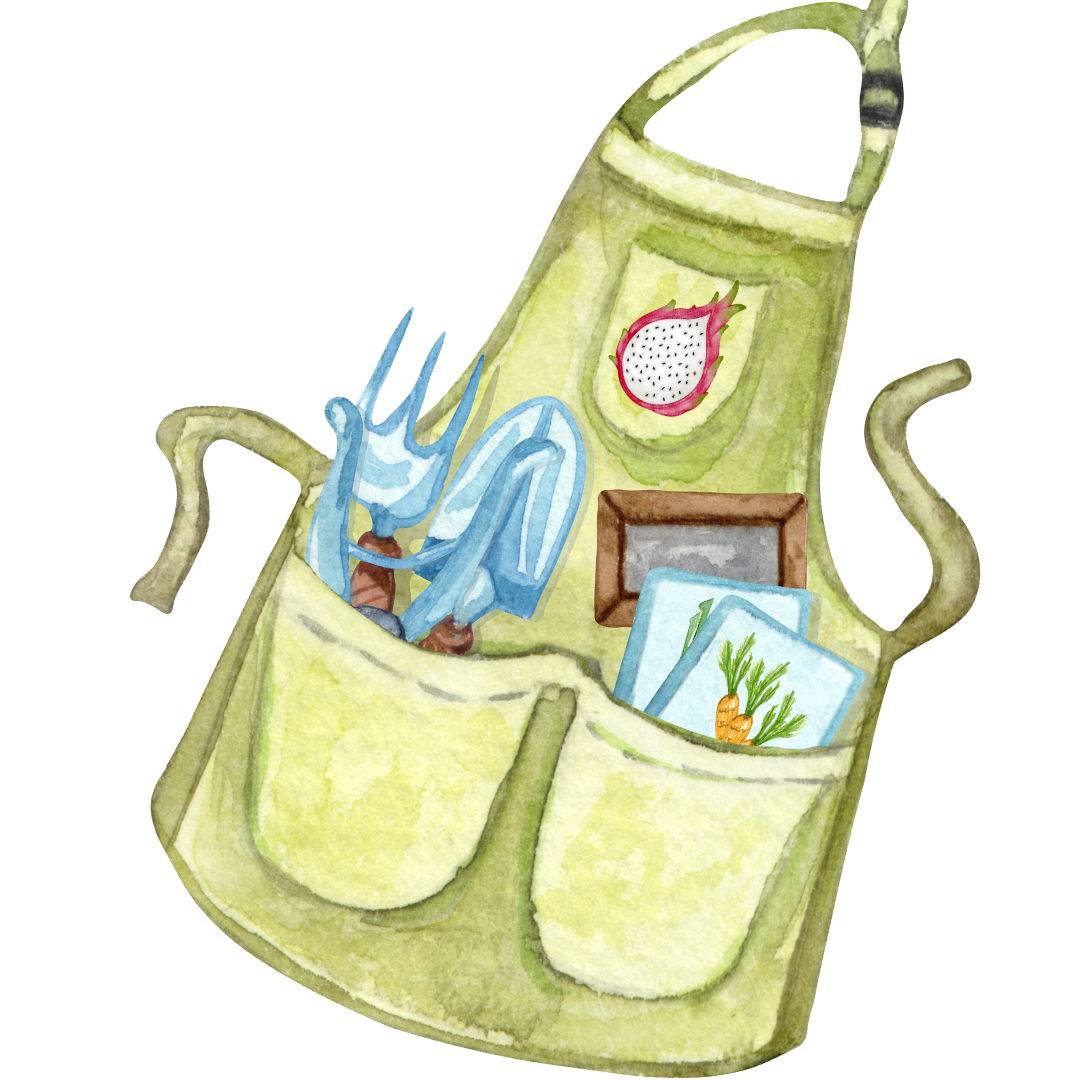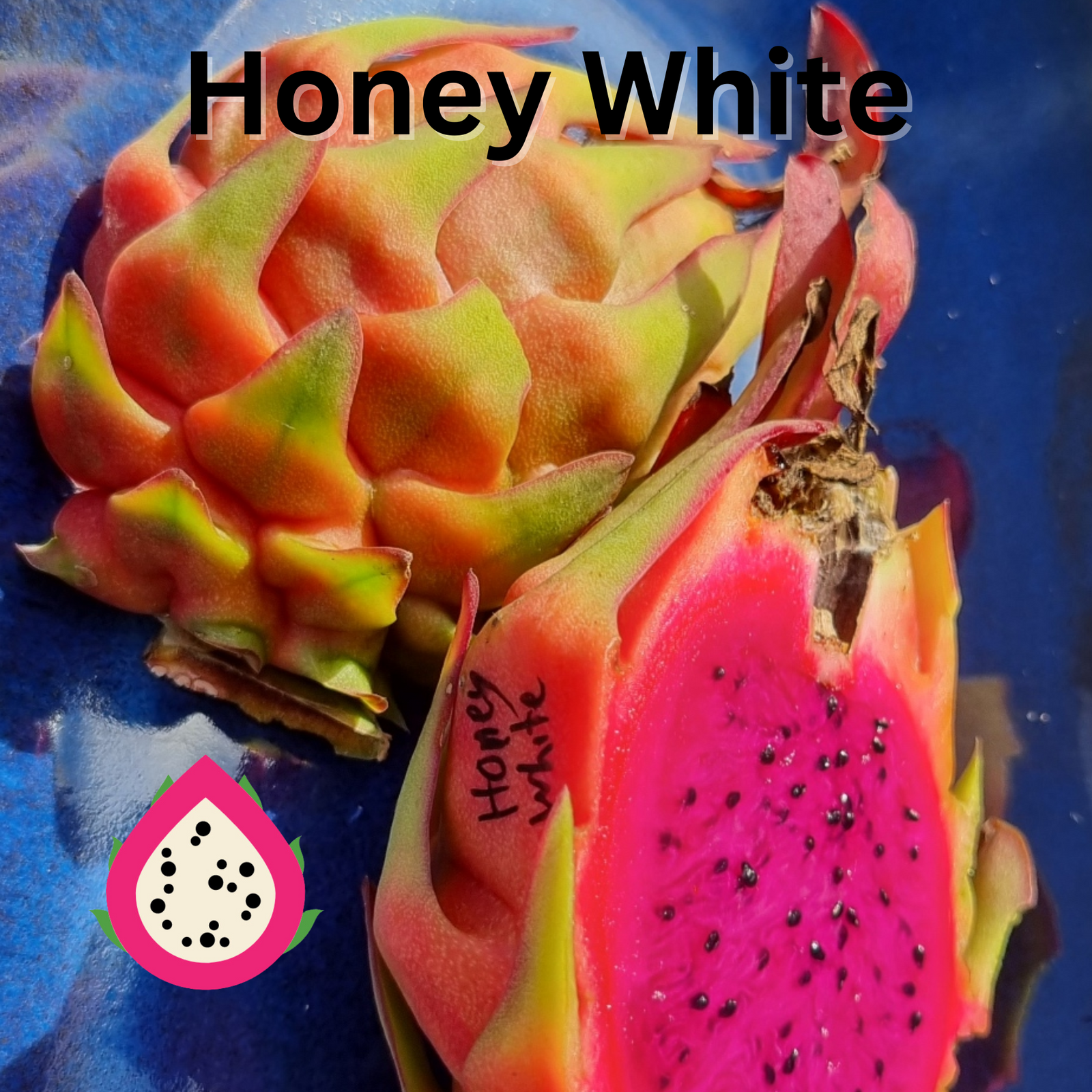At Rare Dragon Fruit we do not just have our plants growing in pots in a sterile backyard and we do not practice monoculture as a lot of single farm crops do.

Rare dragon fruit aim to be different so we plant as much variety as we can. We don't just grow dragon fruit! We create diversity, habitat and flight paths for pollinators.
Rare dragon fruit aim to experiment with zero hand pollenation and build a farm that has as much diversity in dragon fruit cultivars in a small area that interact naturally with each other.
We believe this is possible once your dragon fruit plants are established, 3-5 years depending on variety, growing conditions and planting universal pollinators or pollen rich varieties in and around self sterile varieties.
We believe this is also achievable for the back yard enthusiast.
- Plant 3-4 varieties per post.
- Choose dragon fruit varieties that produce flowers at a similar time(This is something Rare Dragon Fruit have been working on this year, documenting the flowering months of each dragon fruit cultivar. We will continue to add more information as plants flower over the coming years, as weather patterns change each year )
- We don't spray any insecticide
- Companion plant
- Bee hives both European and native
- Let the grass grow and go to seed- bees and insects feed on the grass flowers.
- Use only organic fertilizers.

Planting a diverse range of plants in your garden offers various benefits, both for the ecosystem and for your garden's health. Here are some advantages of promoting diversity in your garden:
-
Biodiversity: A diverse garden supports a wide range of plant and animal species. This biodiversity creates a more resilient and balanced ecosystem. Different plants attract various insects, birds, and other wildlife, contributing to a healthier and more dynamic environment.
-
Pest Control: A mix of plants can help naturally control pests. Some plants repel specific pests, while others attract beneficial insects that prey on harmful pests. This natural balance reduces the need for chemical pesticides.
-
Soil Health: Different plants have varying nutrient requirements and root structures. Planting a variety of species can improve soil structure, nutrient cycling, and microbial diversity. Some plants also have the ability to fix nitrogen, enriching the soil for neighboring plants.
-
Pollinator Support: Diverse gardens provide food and habitat for a wide range of pollinators, such as bees, butterflies, and hummingbirds. This is essential for the pollination of many plants, including fruits and vegetables, contributing to increased yields.
-
Resilience to Environmental Changes: A diverse garden is more resilient to environmental stressors, such as extreme weather conditions, diseases, or pests. If a particular plant is susceptible to a specific issue, the overall garden ecosystem can still thrive.
-
Aesthetics and Interest: A garden with a variety of colors, textures, and shapes is visually appealing. Different plants bloom at different times of the year, providing ongoing interest and beauty throughout the seasons.
-
Improved Soil Conservation: Plants with various root structures help prevent soil erosion by holding the soil together. Deep-rooted plants, for example, can help break up compacted soil, allowing for better water infiltration and aeration.
-
Diverse Harvest: If you grow edible plants, a diverse garden can provide a more extensive and varied harvest. This can enhance the nutritional value of your homegrown produce and broaden your culinary options.
-
Educational Opportunities: A diverse garden can serve as an educational tool for learning about different plant species, their ecological interactions, and the importance of biodiversity. It can be a valuable resource for teaching children and adults about nature and ecosystems.
By embracing diversity in your garden, you create a more vibrant and sustainable environment that benefits both the plants and the wildlife that inhabit your outdoor space.







